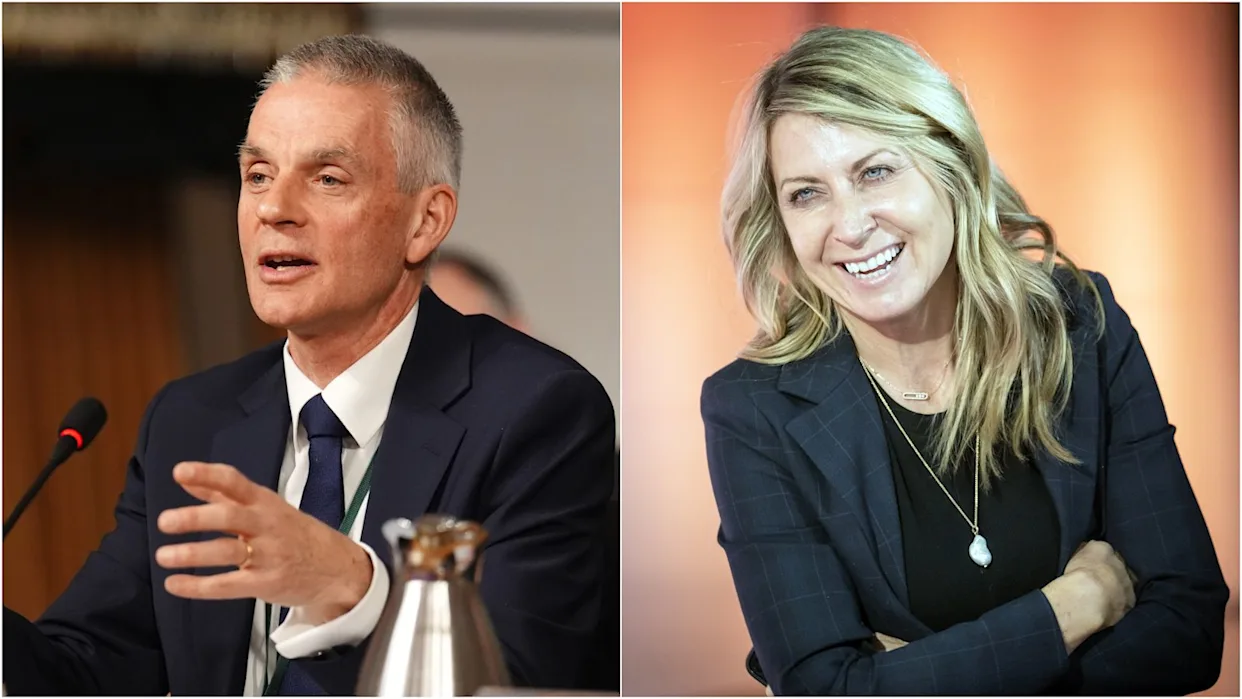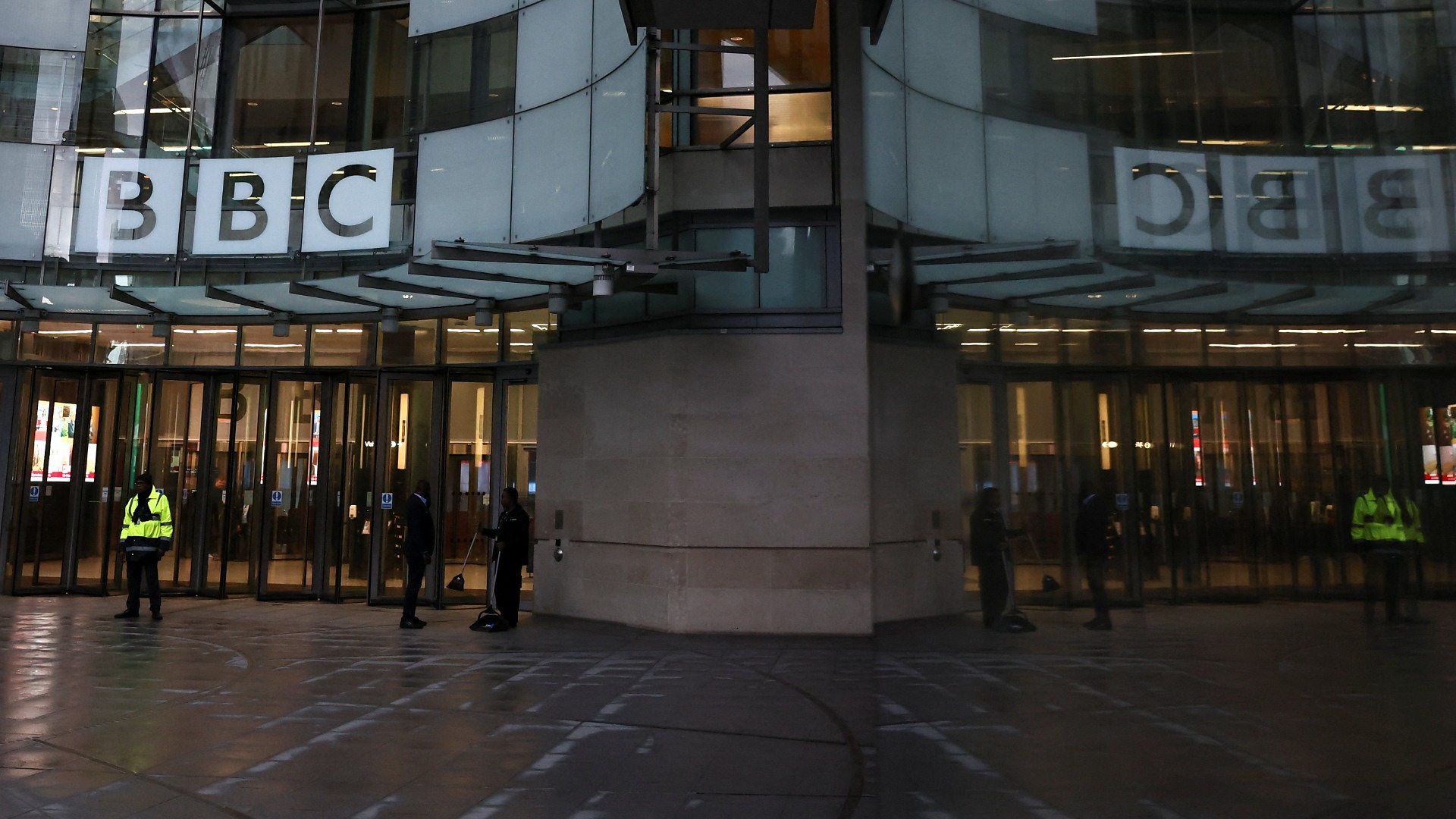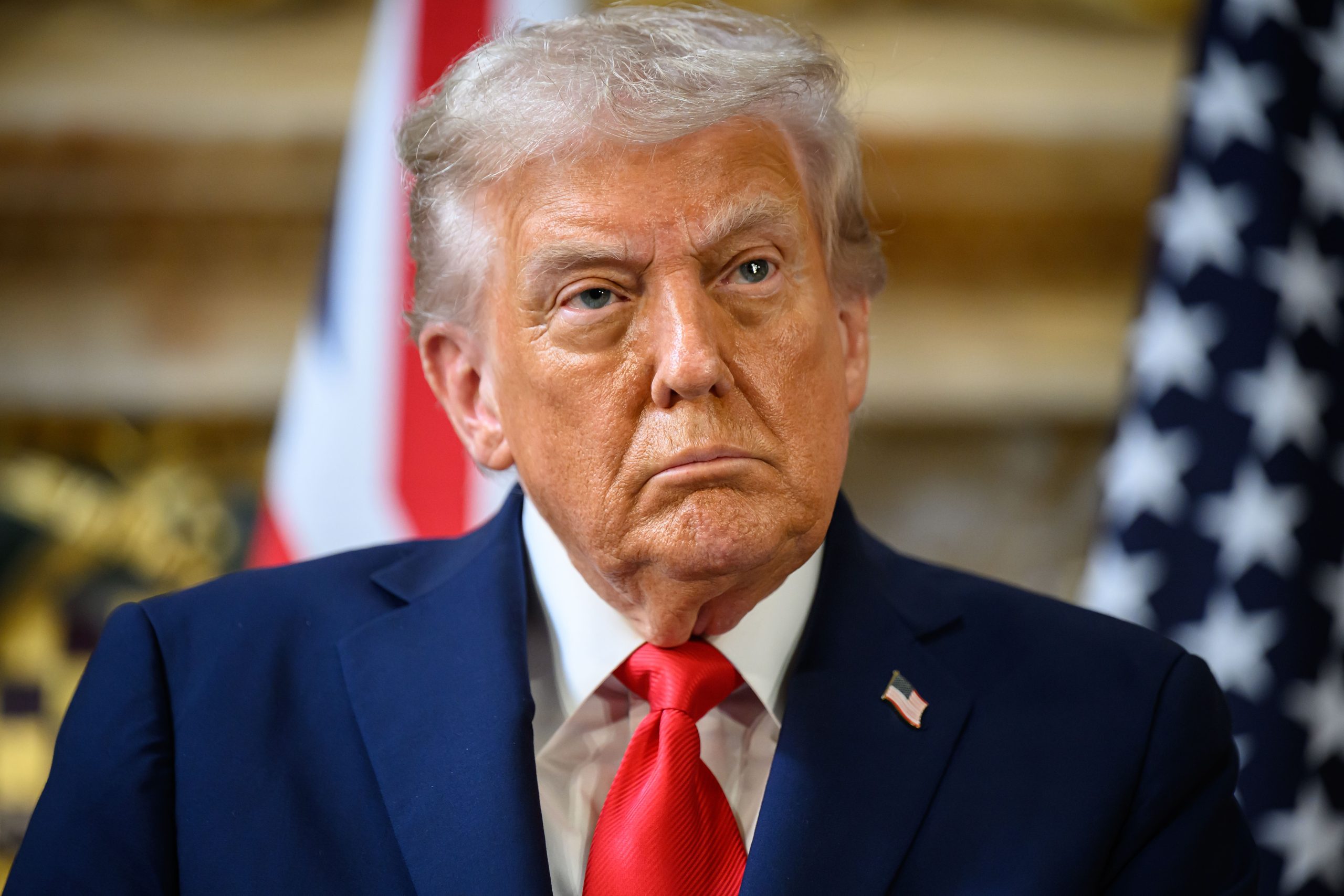Trump's $1 Billion BBC Bombshell: Top Execs Flee as Scandal Exposes Shocking Speech Sabotage
U.S. President Donald Trump has ramped up his war on perceived media bias, firing off a blistering legal notice to the BBC that demands a full retraction and apology—or face a staggering $1 billion defamation lawsuit.
This bombshell development, unfolding just hours ago on November 10, 2025, stems from a controversial Panorama documentary aired days before the 2024 election, where editors allegedly spliced Trump's January 6, 2021, speech to strip out his calls for peace and paint him as inciting violence. The move has ignited fury across the Atlantic, exposing raw nerves about journalistic integrity and thrusting the BBC into a maelstrom of resignations and recriminations that feels like a live-wire courtroom drama.
Trump's Legal Team Delivers a Gut-Punch to BBC Headquarters
Trump's attorneys didn't hold back in their letter, dated today and addressed directly to BBC chair Samir Shah and general counsel Sarah Jones. They accused the broadcaster of "fabricated" and "inflammatory" edits that twisted Trump's words—"We're going to walk down... to the Capitol... peacefully and patriotically"—into a battle cry of "fight like hell." This sleight-of-hand, the letter thunders, reached tens of millions worldwide, inflicting "overwhelming financial and reputational harm" on the 45th president. With a razor-sharp deadline of November 14, 2025, at 5 p.m. EST, the demand is clear: retract the film in prime-time glory, issue a groveling apology, and cough up compensation, or brace for a Florida-based defamation showdown under state law.
The timing hits like a thunderclap. BBC insiders whisper of pandemonium in the newsroom as the letter landed mid-broadcast, forcing anchors to pivot from routine headlines to this transatlantic tempest. Trump's Truth Social post this morning only poured fuel on the fire: "The TOP people in the BBC are all quitting/FIRED, because they were caught ‘doctoring’ my very good (PERFECT!) speech of January 6th... These are very dishonest people who tried to step on the scales of a Presidential Election." It's classic Trump—unfiltered rage wrapped in a vow for vengeance—that leaves no doubt: this isn't a bluff.

Tim Davie and Deborah Turness both resigned from the BBC amid growing controversy over the Panorama editing scandal and allegations of institutional bias.
Chaos Erupts: BBC Leadership Crumbles Under the Weight
The aftershocks have already toppled giants within the BBC's ivory towers. Director-General Tim Davie and BBC News CEO Deborah Turness both tendered resignations, their departures framed as noble sacrifices amid a "credibility crisis" that's devouring the corporation from within. Turness, in a raw statement that tugged at heartstrings, confessed: "The controversy over the Trump documentary has reached a stage where it is causing damage to the BBC, an institution that I love. As the CEO of BBC News and Current Affairs, the buck stops with me." Davie's exit follows a damning Telegraph probe that unearthed ignored warnings from senior editors about the edit's perils, painting a picture of a newsroom adrift in echo chambers of unchecked ambition.
Whispers from confidential memos add a chilling layer. Former standards adviser Michael Prescott lambasted the episode as one that "completely misled viewers," while flagging chronic biases in BBC Arabic's Gaza coverage that erode trust like acid rain. For loyal viewers who fork over their annual license fee with faith in impartiality, this betrayal stings deep—a public treasure tarnished by hubris, leaving families questioning if their £169.50 contribution still buys truth over theater.
The Hidden Financial Nightmare: How a $1 Billion Threat Could Squeeze Every UK Household
Beneath the headlines of resignations and rants lies a colder calculus: the bone-crushing financial peril this lawsuit poses to the BBC, a publicly funded behemoth whose survival hinges on viewer trust and steady revenue streams. Defamation suits like this aren't abstract legal jousts—they're cash incinerators that can torch budgets overnight, forcing tough choices on everything from program cuts to fee hikes that hit ordinary households square in the wallet. Imagine your monthly TV bill creeping up by £5 or £10 to cover a multi-million-pound payout; that's the stark reality staring down 25 million UK license fee payers if this escalates.
According to analysis reviewed by Finance Monthly, high-profile media defamation cases settle out of court about 70% of the time, often for 10% to 50% of the demanded sum—translating to $100 million to $500 million here, a gut-wrenching 2% to 10% slice of the BBC's £5.7 billion annual budget. "These battles aren't just about egos; they're profit-killers that distract from core operations and spook advertisers," paraphrases media finance expert Tom Harrington of PwC, who warns that prolonged litigation could inflate legal fees alone by £20 million to £50 million in the first year, based on precedents like Fox News' $787.5 million Dominion settlement in 2023. For consumers, this means potential ripple effects: scaled-back local reporting, fewer free online resources, or even stealthier fee increases disguised as "inflation adjustments."
Why should you care right now? Because the BBC isn't some faceless corporation—it's your window to global events, funded by your money, and a hit like this could erode the value you get for that £14 monthly outlay. Historical data shows recovery rates for media firms post-lawsuit hover at just 60%, with many passing costs downstream through subtle service trims.
Here's the fresh insight you won't find in every news blurb: savvy UK households can hedge by scrutinizing Ofcom's upcoming impartiality review—due imminently—and lobbying MPs for fee caps tied to performance metrics. Practical step? Download the BBC's transparency report today (available on their site) and track "litigation provisions" in the next quarterly update; if they spike above £10 million, it's your signal to budget for a 3-5% fee bump come April 2026 renewal. This isn't alarmism—it's arming yourself with the numbers to protect your pocket amid the storm.
A Transatlantic Legal Firestorm on the Horizon?
Trump, ever the pugilist in the media arena, smells blood in the water. This $1 billion gambit slots perfectly into his playbook of pummeling "fake news" foes, from New York fraud tussles to E. Jean Carroll triumphs that netted him vindication and headlines. UK libel law sets a steep hurdle—proving "serious harm" and malice—but the BBC's own admissions and executive exodus hand Trump potent ammo. Shah, scrambling to steady the ship, hinted at a "personal apology" in today's interview, his voice cracking with the weight of it all. Yet Trump allies scoff: "Apologies are cheap; accountability costs real money," one campaign insider growled, eyes gleaming with the thrill of the fight.
If it goes to trial, expect a spectacle that dwarfs recent dust-ups. Legal eagles murmur of discovery battles exposing internal BBC emails, potentially unearthing more bias skeletons that could fuel conservative firebrands stateside. For the BBC, once the unchallenged beacon of broadcast neutrality, this is existential—a test of whether it can claw back its halo or fade into a cautionary tale of overreach.

The BBC’s Broadcasting House in London — now at the centre of a political and media storm following Donald Trump’s legal threat.
Ripples of Rage: From Washington to Westminster
The outrage isn't confined to London fog. In the U.S., GOP heavyweights like House Speaker Mike Johnson are rallying, branding the edit "election meddling by foreign propagandists" on Fox loops that loop it endlessly. Right-wing echo chambers buzz with calls to boycott BBC streams, amplifying Trump's narrative of a global cabal out to kneecap him. Across the pond, UK pundits fret over the license fee's fragility; polls today show 42% of viewers mulling cancellation if bias probes deepen, per YouGov's flash survey—a dagger to the heart of public funding.
This isn't mere tabloid tattle—it's a seismic shift in how borders blur for news wars. Commentators evoke the BBC's halcyon days, now shadowed by doubt: "Trump's suit isn't just personal; it's a referendum on whether we still believe in a free press that serves, not slants," penned ex-editor Mark Thompson in The Guardian. As the clock ticks toward Thursday's deadline, the world holds its breath, wondering if cooler heads prevail or if this feud explodes into a billion-dollar inferno that redraws media battle lines forever.
Beyond the Headlines: What Readers Want to Know
What Is Donald Trump's Net Worth in 2025?
Donald Trump's fortune has surged amid his political resurgence and savvy ventures, clocking in at $6.6 billion as of September 2025, according to Forbes' latest tally. This windfall stems from booming real estate holdings, a $2.4 billion crypto and liquid asset pot, and explosive growth in his Truth Social media empire, which alone added over $1 billion post-IPO.
Yet lawsuits like this BBC clash could nibble at the edges—legal fees have already siphoned $10 million from Trump Media this quarter—reminding even tycoons that reputational hits carry a steep price tag. For everyday investors eyeing his stock, it's a volatile ride: shares jumped 15% today on lawsuit buzz, but volatility warnings abound from Wall Street watchers.
Why Is Trump Suing the BBC Over the Panorama Documentary?
Trump's $1 billion threat targets a Panorama episode from October 28, 2024, titled "Trump: A Second Chance," which he claims doctored his January 6 speech by excising peaceful protest pleas and stitching in fiery rhetoric to stoke insurrection fears right before voting day. His lawyers argue this "malicious" edit, viewed by millions, defamed him under Florida law, causing tangible harm to his brand and ballot box appeal. With BBC execs resigning in droves, the suit paints a picture of institutional rot, forcing the broadcaster to confront accusations of anti-Trump bias that echo through its newsrooms and fuel a broader war on "elitist" media manipulation.
Could This Lawsuit Bankrupt the BBC or Force Fee Hikes?
While a full $1 billion verdict seems a long shot under UK law's "serious harm" threshold, settlements in similar defamation dust-ups—like Fox's $787.5 million Dominion payout—often land in the $50 million to $200 million range, a brutal blow to the BBC's £5.7 billion budget that could trigger 5-10% efficiency drives, including axing niche programs or digital expansions. For license fee payers, this translates to potential £8-15 annual increases by 2027 to plug gaps, per Ofcom models; savvy consumers should petition for independent audits now to safeguard value, ensuring your fee funds facts, not fixes for editorial fumbles.













